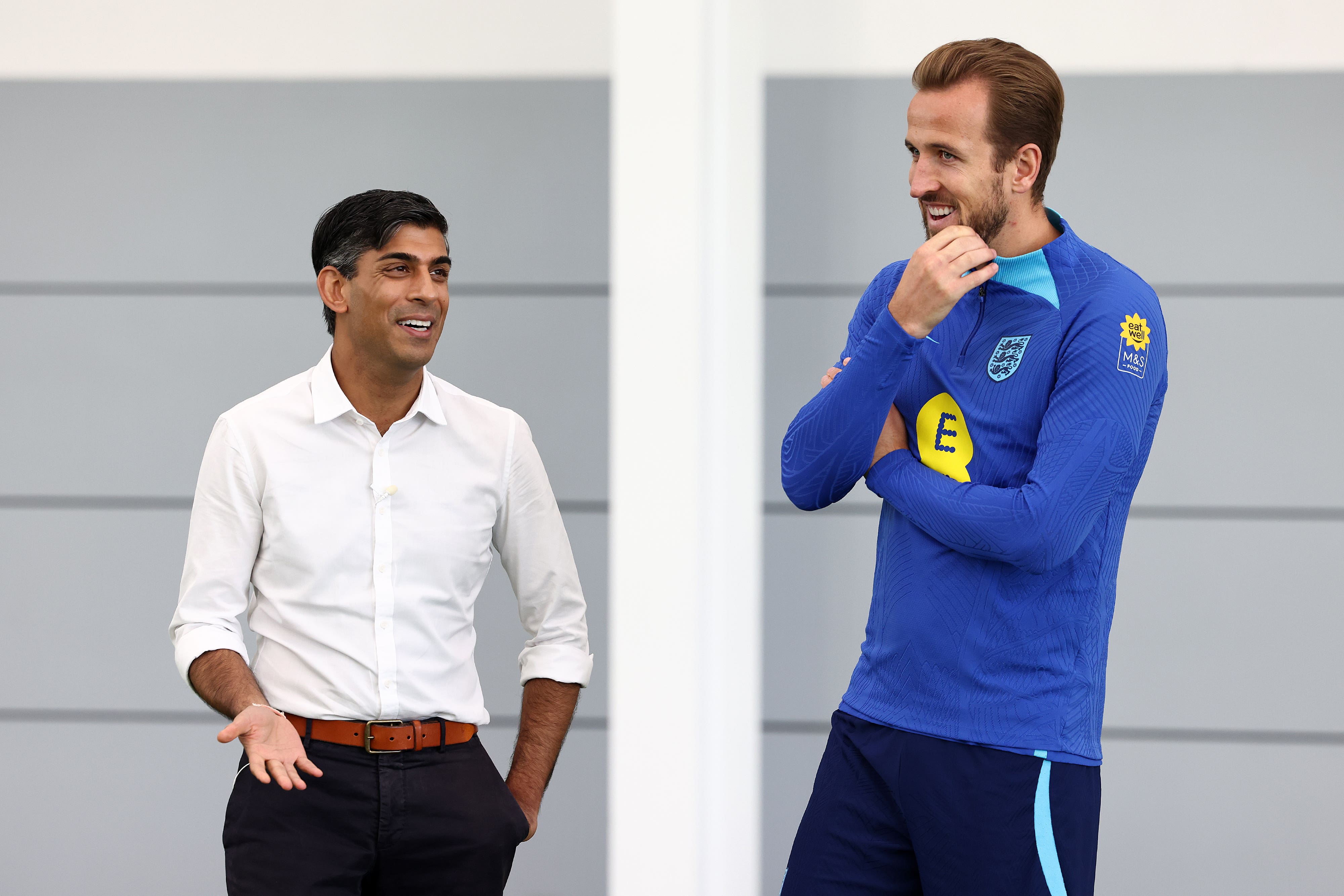Football regulator to have power to settle row over financial distribution
The Government is set to introduce its legislation setting up an independent football regulator on Tuesday

Your support helps us to tell the story
From reproductive rights to climate change to Big Tech, The Independent is on the ground when the story is developing. Whether it's investigating the financials of Elon Musk's pro-Trump PAC or producing our latest documentary, 'The A Word', which shines a light on the American women fighting for reproductive rights, we know how important it is to parse out the facts from the messaging.
At such a critical moment in US history, we need reporters on the ground. Your donation allows us to keep sending journalists to speak to both sides of the story.
The Independent is trusted by Americans across the entire political spectrum. And unlike many other quality news outlets, we choose not to lock Americans out of our reporting and analysis with paywalls. We believe quality journalism should be available to everyone, paid for by those who can afford it.
Your support makes all the difference.Football’s independent regulator will have the power to settle the ongoing row over financial distribution between the Premier League and the EFL.
The Government has long warned the football authorities the regulator would have “backstop powers” to intervene and those powers will be confirmed on Tuesday when the Football Governance Bill is introduced to Parliament.
“These powers mean that if the leagues fail to agree on a new deal on financial distributions, then the backstop can be triggered to ensure a settlement is reached,” a Government announcement on the Bill said.
Precise details over the point at which the powers would be triggered, and what those powers would look like, have not yet been confirmed but the Government said in a consultation response last September that one option it was considering was binding final offer arbitration.
Under that system, the two leagues would each submit their proposal, the regulator would assess them against predetermined criteria, and then would choose and impose one as the binding arrangement.
There had been hope that the Premier League’s clubs would make a formal offer to the EFL at a meeting last Monday, but none was forthcoming and instead the Premier League said its clubs were focused on first agreeing new financial rules for the top flight.
A statement released on Monday evening read: “The Premier League will now study the Football Governance Bill, working closely with Government, parliamentarians and key stakeholders.
“We agree it is vital that football clubs are sustainable, remain at the heart of their communities and that fans are fundamental to the game.”
Top flight clubs were accused by Culture, Media and Sport select committee chairwoman Dame Caroline Dinenage of making an “empty promise” while the EFL said it was “clearly disappointed” at the “repeated failure” to put forward any new funding offer.
Premier League sources insist the EFL pushed back on 15 separate points when the Premier League made a proposal covering increased funding and cost controls to the EFL last September.
EFL chairman Rick Parry told MPs in January that the funding offer under discussion would give his competition 14.75 per cent of the net media revenues earned by the EFL and the Premier League.
This has been projected to be worth an extra £900million to the EFL over six seasons.
On Monday evening, Mr Parry welcomed the introduction of the Bill, saying it could “help fix the game’s broken financial model” – if it was “delivered on the right terms”.
The regulator’s primary purpose, once established, will be to safeguard the financial sustainability of clubs in England through a licensing system. This will cover clubs from the National League up to the Premier League.
The Government has said the regulator will have the ability to fine clubs up to 10 per cent of turnover for non-compliance.
It will also have the power to block clubs from competing in unapproved competitions, a nod to the outrage among fans caused by England’s Big Six seeking to form a European Super League in April 2021.
The Government intends the regulator’s licensing regime to be “proportionate” and said it will involve a system of provisional and full licences, to give clubs time to transition.
The regulator will have the power to assess prospective new owners and directors and disqualify them where they persistently or wilfully fail to comply with licensing conditions, the Government said.
Prime Minister Rishi Sunak said: “For too long some clubs have been abused by unscrupulous owners who get away with financial mismanagement, which at worst can lead to complete collapse, as we saw in the upsetting cases of Bury and Macclesfield Town.
“This Bill is a historic moment for football fans, it will make sure their voices are front and centre, prevent a breakaway league, protect the financial sustainability of clubs, and protect the heritage of our clubs big and small.”
Labour’s shadow culture secretary Thangam Debbonaire welcomed the Bill’s introduction after what she called “years of Tory time wasting”.
She said: “We’ve long been calling for an independent regulator for football to give fans a greater say in the way their clubs are run, tackle poor governance and prevent bad-faith ownership.
“For too long fans up and down the country have been forced to watch their clubs pushed to the brink.
“The new regulator must robustly defend the interests of fans and ensure the financial sustainability of the football pyramid.
“We will scrutinise the proposals of the Bill carefully and work to ensure the new regulator has the powers it needs to protect clubs which are the beating heart of towns and cities across the country.”
Join our commenting forum
Join thought-provoking conversations, follow other Independent readers and see their replies
Comments